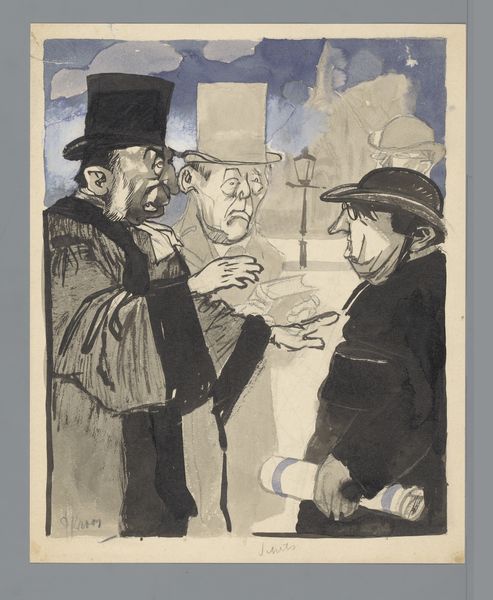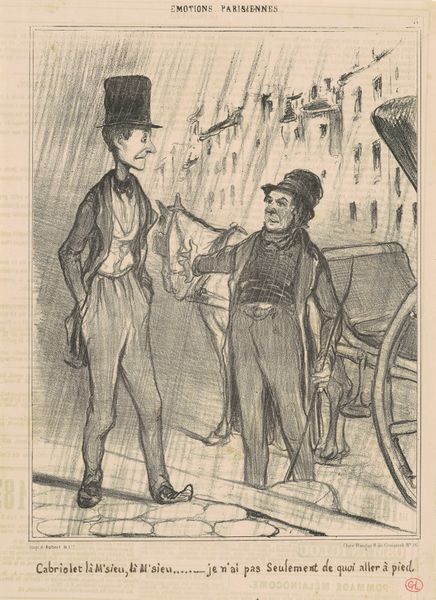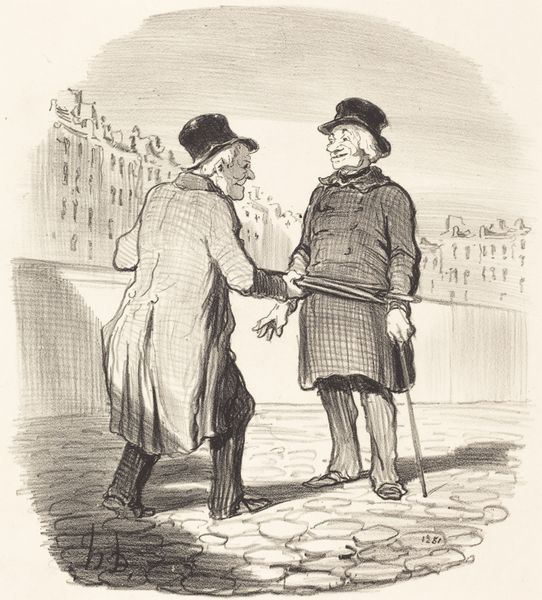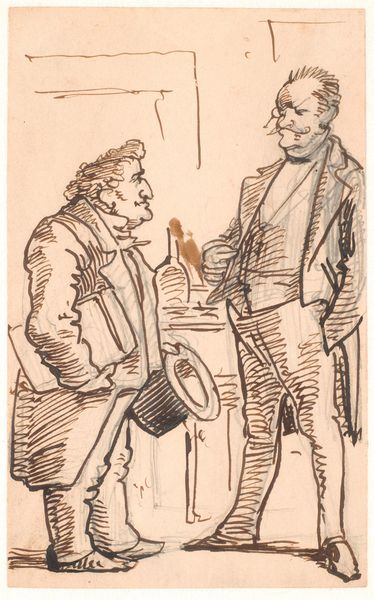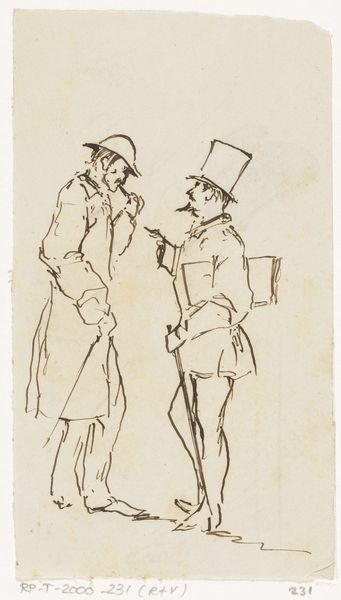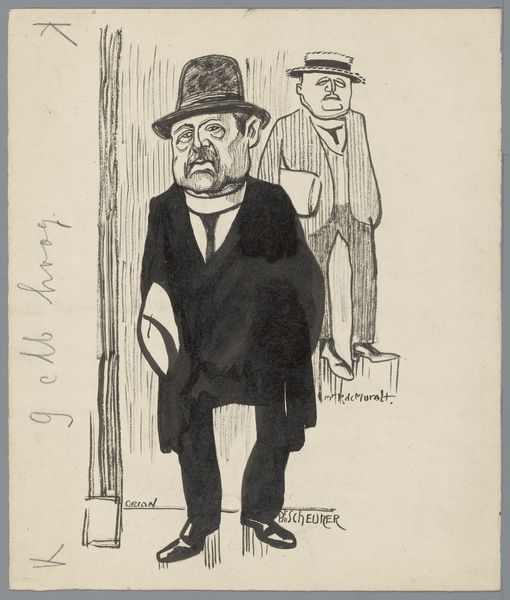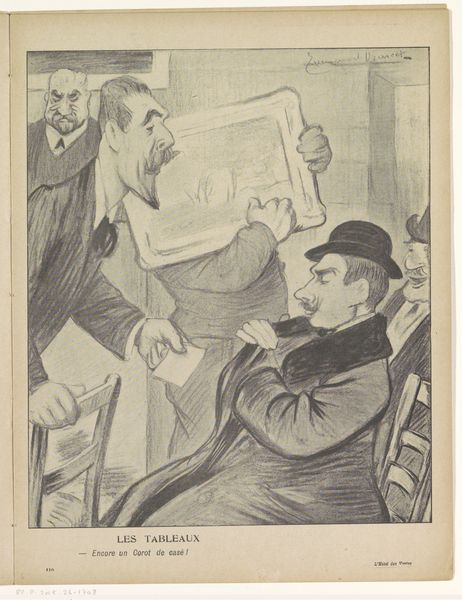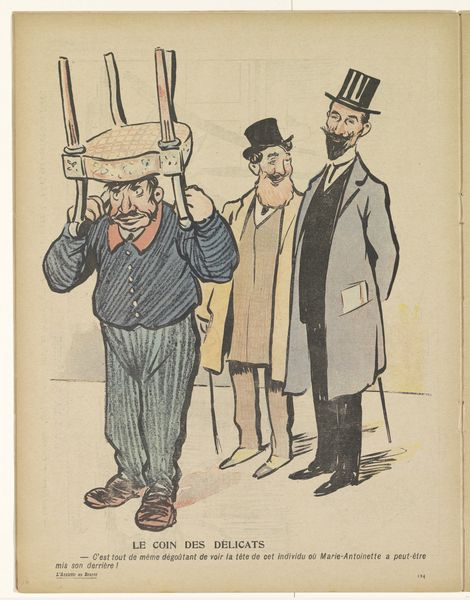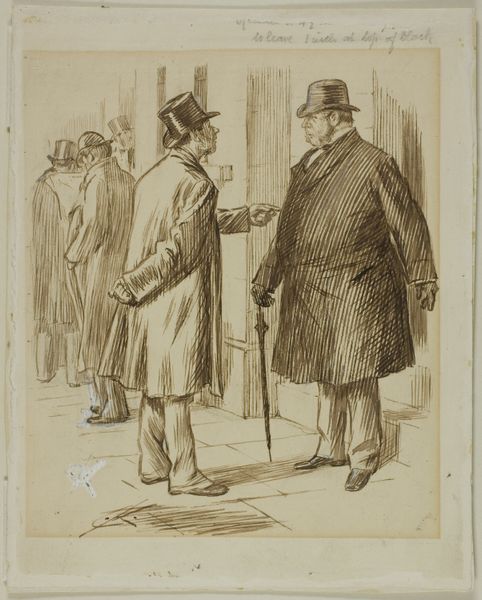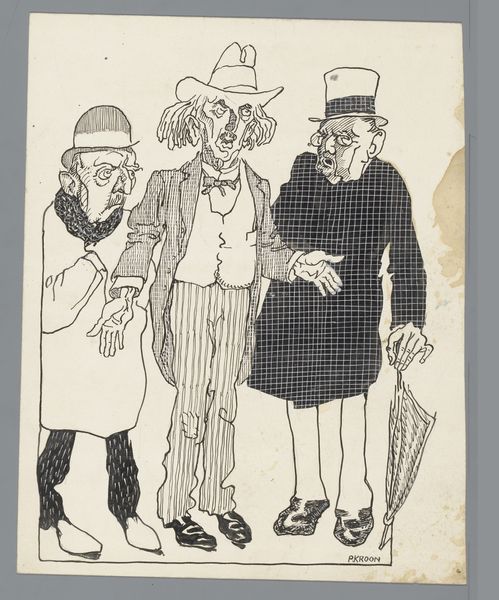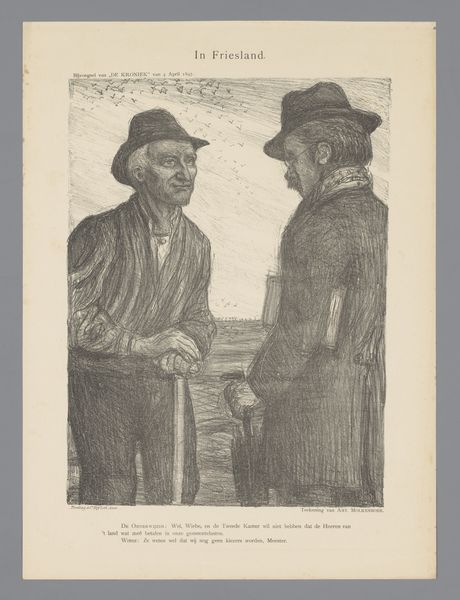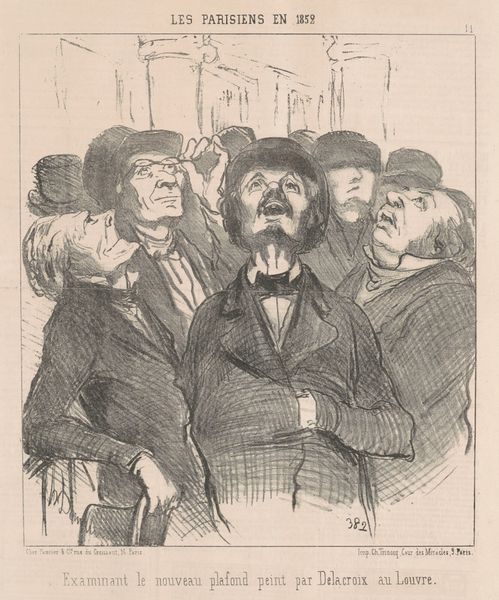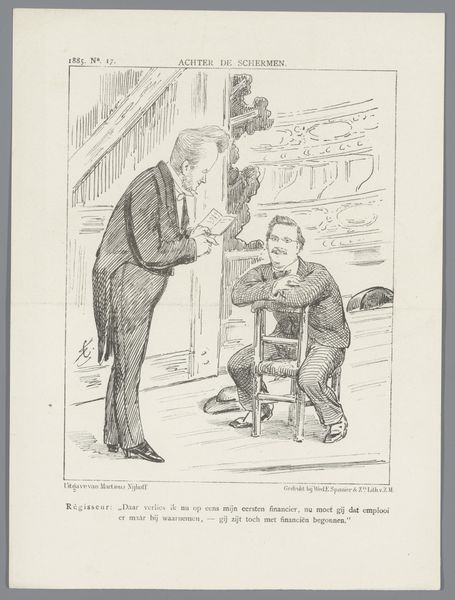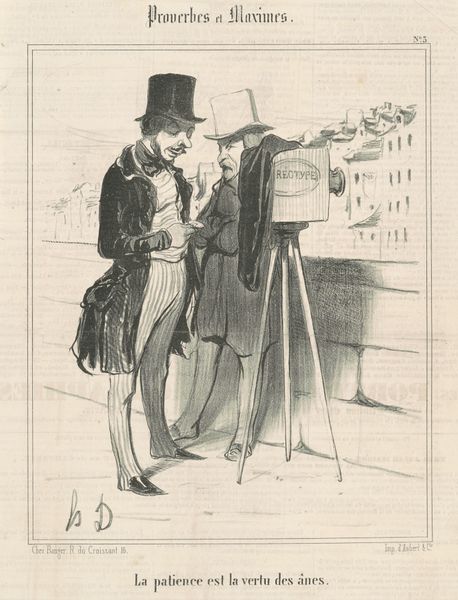
drawing, pen
#
portrait
#
drawing
#
aged paper
#
quirky sketch
#
caricature
#
sketch book
#
personal journal design
#
personal sketchbook
#
sketchwork
#
sketchbook drawing
#
pen
#
cityscape
#
watercolour illustration
#
genre-painting
#
storyboard and sketchbook work
#
sketchbook art
#
modernism
Dimensions: height 230 mm, width 178 mm
Copyright: Rijks Museum: Open Domain
Editor: So, here we have "Twee mannen op straat" – that’s "Two Men on the Street" – by Patricq Kroon, sometime between 1900 and 1940. It’s a drawing, seemingly pen on aged paper, with a real caricature vibe. I find the contrast between the two figures really striking, almost humorous. What do you see in this piece? Curator: I'm immediately drawn to the symbolism inherent in the portrayal of these figures and their surroundings. The cityscape in the background anchors the scene, placing these men within a specific societal context. Do you notice the contrasting attire and posture of each figure? One appears more prosperous, perhaps even bourgeois, while the other seems… downtrodden. Editor: Yes, the figure on the right looks rather dishevelled, bundled in a dark coat with what look like striped trousers, compared to the man in the light coloured coat on the left who looks a bit like a city gent. Curator: Indeed. The artist subtly codes status and circumstance. This contrast isn't just visual; it speaks to deeper socio-economic divisions prevalent during the era. Consider the hats: what does that bowler say compared to the Fedora? These sartorial choices reflect carefully constructed identities and class aspirations. We must also ponder what is happening in the 'street', who would be present, how does that all connect with shared experience and unspoken power? Editor: I never thought about the hats, but that’s so true! What seemed like just a quirky drawing now feels much more like a statement. Curator: Exactly. Art is a language of symbols, revealing collective memories and societal values. What seemed whimsical at first, yields to profound layers of meaning as we learn how to look at how things are presented. Editor: I’ll definitely be paying more attention to details like that in other works, too! Thank you!
Comments
No comments
Be the first to comment and join the conversation on the ultimate creative platform.
